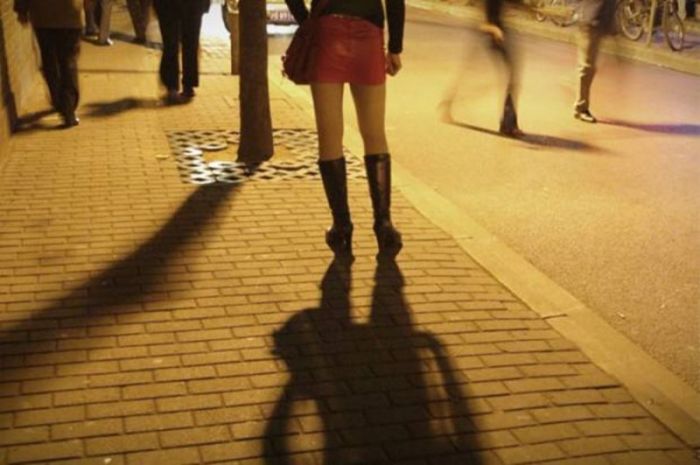Sex trafficking survivors fight bill to decriminalize prostitution in nation's capital

Hundreds of sex-trafficking survivors are pushing back against a bill that would decriminalize prostitution, euphemistically called "sex work," in the nation's capital.
In a letter obtained by ABC News earlier this month that has over 200 signatories, many of whom were once prostituted and trafficked themselves, the Rev. Marian Hatcher stressed that decriminalizing prostitution endangers at-risk populations.
"We are horrified by the proposal to decriminalize informal brothels throughout the district. This, paired with the decriminalization of sex-buying, would surely fuel the trafficking and exploitation of countless other vulnerable groups," Hatcher wrote, urging the city council members to reject the proposal.
Hatcher, a trafficking survivor, is the senior project manager and human trafficking coordinator at the Cook County Sheriff’s Office in Chicago, Illinois, and has been featured in the Oprah Winfrey Network documentary, "Prostitution: Leaving the Life" and in the film, "I Am Jane Doe," among others.
Proponents of decriminalization, such as district councilman David Grosso who brought forward the proposal, maintain that removing criminal penalties from those in the trade will bring them "out of the shadows" and more easily connect them with services. Grosso's legislation is called the Community Health and Safety Act of 2019. Council member Charles Allen, D-Ward 6, is co-sponsoring the bill.
“Mr. Grosso wants the public to believe that pimping won’t increase under his proposal, but it seems he is out of touch about the alarming issue of sex trafficking in Washington, D.C.,” said Felicia Henry of Courtney's House, a Washington-based organization that provides recovery services for domestically sex trafficked youth, WTOP reported on Thursday.
During a Thursday hearing at city hall emotions ran high as the majority of over 180 witnesses adamantly spoke out against the proposal.
Yasmin Vafa, an attorney and executive director with Rights for Girls, is advocating for partial decriminalization and enacting programs for victims to exit prostitution.
“The true progressive solution is to work toward reducing the number of people involved by offering them services, housing and other vital support,” Vafa said. “But this bill does none of that.”
Lauren Hersh, national director of World Without Exploitation, says the title of the bill is deceptive and if it's passed would turn the nation's capital into a hub of sex tourism, where brothels proliferate and pimps operate freely.
"Supporters of this legislation want you to believe that the bill simply would decriminalize those sold in prostitution, reducing interactions between victims of prostitution and the police. If that were the case, survivors and those working to end sex trafficking would be championing the bill," Hersh wrote in an Oct. 10 op-ed in The Washington Post.
"But it would not, and facts matter. This bill would decriminalize people in prostitution, but it also would decriminalize pimps, sex buyers and brothel owners. Put another way, this legislation would make pimping legal in the district."
Last month, The Washington Post editorial board weighed in, urging the city council not to decriminalize pimping, calling the notion of prostitution being a "victimless crime" a "myth."
Opponents of the decriminalization or legalization of prostitution often contend for what is known as the Nordic Model or Equality Model, which criminalizes the purchase of sex but not the sale in order to target the trade at its source: the pimps and johns.
"A better option that the council should consider is partial decriminalization, the so-called Nordic model, in which it is legal to sell sex but paying for sex, brothel-owning and pimping would remain crimes. In short, those who are exploiting — not those who are being exploited — would be punished," the editorial board concurred.
















![[Ready to PUB] Christian psychologist: Kids must develop 'resilience' to fulfill God's purpose for them](https://cdn.christianpost.com/images/cache/thumbnail/25/92/259219_a_300_200_658_146.jpg)











